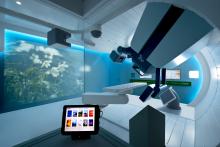Fysicon announced its acquisition by Canon Medical Systems Corporation. Linda Elberse, CEO of Fysicon, stated: "Being part of a major player as Canon Medical Systems Corporation gives us the opportunity to cover all parts of the world with our innovative systems. Now Canon Medical has completed the image by adding Fysicon’s new developed hemodynamic monitoring system “QMAPP”, the sophisticated device management system “DataLinQ” and the cloud based image distribution software “EVOCS" and last but not least Fysicon's knowledge of connectivity and workflow management. Canon Medical is a strong brand name and a leading supplier, which will help us take the next steps into strengthening and growing our footprint in the global market. Furthermore we will keep developing new technologies and exploring new areas in the medical field together with our new parent company. We are very proud to have joined forces!”
© Copyright Wainscot Media. All Rights Reserved.
Subscribe Now



